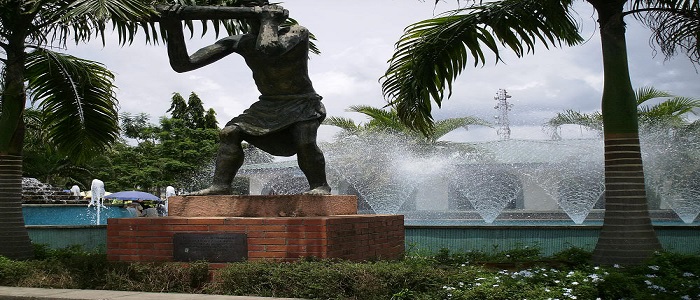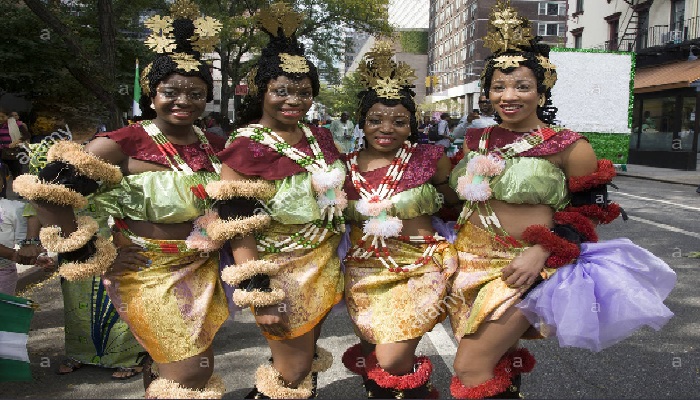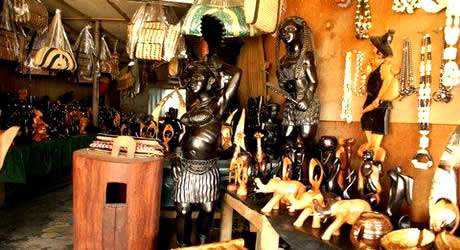The Independent National Electoral Commission (INEC) has warned that the strike by the Academic Staff Union of Universities (ASUU) and the Academic Staff Union of Polytechnics (ASUP) may affect the 2019 general elections, if not resolved now. There was a twist to the tale when the National Association of Nigerian Students (NANS) threatened to “wade” in if their teachers did not return to work in two weeks, reports ADEGUNLE OLUGBAMILA.
When the Academic Staff Union of Universities (ASUU) began its indefinite strike on November 5, many thought the matter would be settled in no time. But the strike has dragged for over one month and there appears to be no end in sight. To compound matters, the Academic Staff Union of Polytechnics (ASUP) has also been on strike since December 12.
The fear of the Independent National Electoral Commission (INEC) that the strike could affect the forthcoming general elections, if not suspended before the polls, has heightened calls for the resolution of the matter.
INEC is eyeing over one million ad hoc workers for the election, which begins in February, 2019. The bulk of these workers would comprise lecturers and students of Federal Government tertiary institutions nationwide as well as National Youth Service Corps (NYSC) members.
But, according to the election umpire, this may no longer be because of the strike.
Last weekend, ASUU said there was no going back on its action. At a briefing on Sunday at the University of Lagos (UNILAG), ASUU National President Prof Biodun Ogunyemi urged the government not to drag ASUU into the election.
Ogunyemi implored the government to, among others, “demonstrate serious commitment to implement the spirit and letter of the 2009 Federal Government/ASUU agreement and consider the implementation of the 2013 and 2017 Memorandum of Understanding it signed with the union”.
“All we are asking for is the improved infrastructural development of Nigeria’s public universities to be globally competitive,” Ogunyemi said at the briefing.
He said it was not true that the strikes would affect the February 2019 elections.
ASUP too has vowed not to back down until its demands are met. The strike followed the government’s alleged failure to implement its agreements with the union since 2016.
According to ASUP leadership, its members too would not bulge, if the lingering issues between the union and the government were not addressed before the elections.
This development has left INEC with only one option; to co-opt students.
But the NANS’ threat to “wade” into the strike may not make that option feasible.
ASUP National President Comrade Usman Dutse told our reporter that it was only ASUP-NEC that could direct members to return to the classsrooms, adding that that seemed unlikely now until their meeting with the government on January 10, 2019.
“It is true that some of our members are actually mobilised during general elections. But in view of the strike, I am not in a position to decide whether this (mobilisation) will be possible or not.” Dutse told The Nation on phone on Sunday.
“Besides, it is only ASUP-National Executive Council (NEC) that can take a final decision on that. We already have a meeting with the Federal Government on January 10. After the meeting, ASUP-NEC will deliberate on the next line of action,” he added.
Usman claimed that despite the 21-day ultimatum by ASUP to the government to address some of the issues, it had been nonchalant in acceding to the demands for improved funding for polytechnic education.
Also, the National Association of Nigerian Students (NANS), the students’umbrella body, at the weekend, vowed to disrupt the general elections if their teachers were not settled. NANS demanded that all parties sheathe their swords two weeks or face a showdown.
The students’ body said having appraised the issues between ASUU and Federal Government, and applied two of its three ‘Cs’ (Consultation and Consolidation), the body is left with no other alternative than to apply the last C (Confrontation).
In a statement, the NANS National President, Comrade Danielson Bamidele Akpan at the weekend, threatened to ‘engage in a mass protest to grind down activities across the country, and ‘’mobilise over 100,000 students to also shut down the Federal Capital Territory’’.
The students leaders also said ASUU members must be ready to vacate their various staff quarters on campus. ASUU members, NANS insisted, should pay the students from the salaries that they did not work for.
NANS added: “Finally, we are determined to carry out these actions to the fullest if our campuses are not reopened at the expiration of this ultimatum. We, therefore, urge the Federal Government and ASUU not to test our resolve as students have been patient and taken for granted too far too long.”
In a telephone chat with our reporter, Danielson said should the strike persist, many of their members would have been disenfranchised by the time the election is held.
“Truth is, many of our members registered close to their campuses for ease of voting. But many of us are now home due to the strike and we cannot travel to our schools to exercise our franchise during the election period. This is the time many of us are also prone to violence because they are idle,” he told The Nation on phone.
He continued: “The end of the year is usually like graduating period and while the New Year serves as the beginning of a new academic session. This means many of our members due for graduation may not graduate, let alone being mobilised for the mandatory NYSC. This also means they may have to pay tuition in the next academic session. Who takes care of that?
“We felt these people are just toying with our future and it’s about time we took our destiny in our hands.”
But in an interview, Ogunyemi said ASUU would attend a meeting with INEC Chairman on Friday, January 4.
He said the union had not decided if it would deal with any member who chose to work with INEC, in case ASUU did not to pander to INEC’s request.
“We have not yet discussed whether we will sanction our members who choose to work individually for INEC, if our strike still persists.
“We have a plan to meet INEC that has invited us on January 4. We wish to see what INEC has in store for us. We shall then take INEC messages and get back to our members.”
During a workshop organised by INEC, in conjunction with the United Nations in Abuja last week, the Commission’s Chairman of Information and other Education Committee Festus Okoye, had expressed concerns that the burden of recruiting ad hoc workers could not be shouldered by NYSC members alone.
He said: “It is next to impossibility for members of NYSC to provide all the ad hoc staff needs and requirements of the commission, and over 70 per cent of ad hoc staff requirement in some states of the federation are drawn from students of federal tertiary institutions.
“Hence the lingering strike by ASUU will no doubt have serious impact on the conduct of the 2019 elections. We, therefore, call on ASUU and the Federal Government to resolve the lingering impasse that had led to uncertainty in the education sector.
“The national interest, the interest of our democracy and the reputation of Nigeria demand the immediate resolutions of the issues that led to the strike and we so urge.
“It is important that students in federal tertiary institutions should and must be in school at least a month before the February 16 presidential and national assembly elections. They are a critical resource and their absence will have adverse effects on the ad hoc requirements of INEC.”





